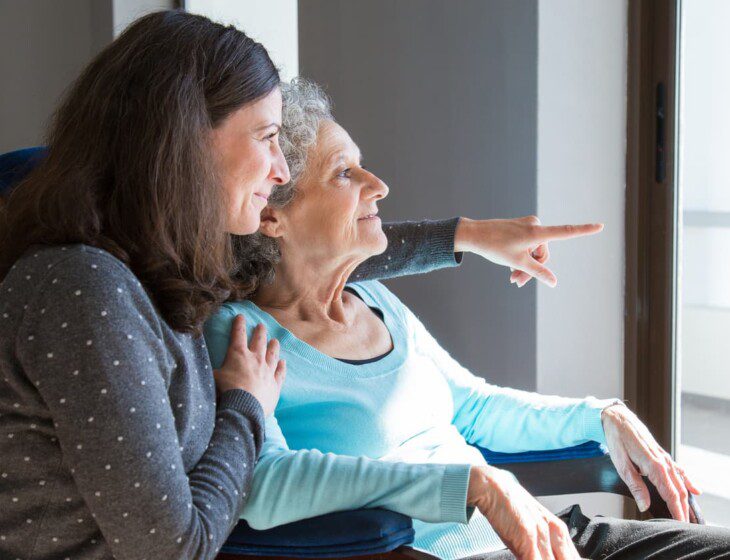As a caregiver, it’s okay to ask for help. Ordinarily, you are the one providing it, but you have needs, too. It can be especially easy to neglect your own health as a caregiver and to let guilt allow you to overlook how stressed and overwhelmed you feel at times. But caregiver burnout can have a negative effect on both you and the loved one in your care. Respite care serves the needs of both you and your loved one. Harbour’s Edge can help.
Am I Suffering from Caregiver Burnout?
Did you know that 23% of American caregivers surveyed by the National Alliance for Caregiving and AARP said that caregiving has made their own health worse? Caregiving can take a toll, leaving caregivers regularly stressed and exhausted. They can end up neglecting their own health, which impedes their ability to provide adequate care and support for their loved one. Feelings of guilt prevent them from giving themselves a break, and they will often have reservations about entrusting care of their loved one to a stranger, even for a brief period.
But there is no shame in recognizing that you need help. To gain a better understanding of how much stress you are experiencing, ask yourself these questions:
- Do you often feel like you have to do everything yourself, and also that you should be doing even more?
- Have you withdrawn from activities that were once a source of joy for you?
- Are you more often sad, exhausted, or angry than you used to be?
- Do you regularly feel stressed about money and health care decisions?
- Do you constantly worry about the safety of the person under your care?
If you answered “yes,” to one or more of the questions above, you are almost certainly experiencing a significant amount of stress and may be at risk of caregiver burnout.
Respite Care at Harbour’s Edge
One option for caregivers and their loved ones is respite care. Respite care is a type of professional care that provides caregivers with a break from their regular caregiving duties. It can be provided as an in-home service or at an adult day center or in a residential care setting. The respite care provider provides a safe and welcoming environment for your loved one, freeing up the time you need to care for yourself, run errands or even travel out of town.
Harbour’s Edge provides 24/7 respite care services for a minimum stay of two months in our health center. Respite care residents receive all of the same benefits as full-time residents, from community events and activities to a premium selection of chef-prepared meals.
You can trust that your loved one is in good hands and use this time as you see fit.
Ways to Discuss Respite Care with Your Loved One
Respite care always starts with an open and honest conversation between you and your loved one. It is a type of care that should benefit both of you, so both of you should be part of the decision. But you’ll want to consider how you approach that conversation, starting with the time and place. Try to remove as much emotion from the conversation as possible, which means a lunch date on a random day might lead to a healthier discussion than a talk at home around the holidays.
It is also critical that you do your homework before you even start the conversation. Your loved one is undoubtedly going to have questions, and it is important that you have the answers. Do your due diligence in exploring the types of respite care services in your area.
Even though respite care is about providing caregivers with temporary relief, try to focus on how it will benefit your loved one. They need to know that this is in their best interest, as well. Help them understand how respite care could improve their overall health, open them up to new opportunities and even strengthen the relationship between the two of you.
How to Overcome Obstacles to Respite Care
Even if you follow the aforementioned guidance, there is no guarantee that your loved one will be receptive to the idea of respite care. If they are resistant, the best thing you can do is to be empathetic and make sure to understand and acknowledge their feelings. Once you can see the situation from their perspective, you are better equipped to alleviate any concerns they may have. It might also be a good idea to involve another trusted source, such as a friend or even their primary physician, if your loved one might warm up to the idea if they can hear from a trusted friend or medical professional.
You also don’t want to rush into anything. Try and ease them into the idea of respite care as much as you can. It can be as simple as seeing if they would be willing to visit a day center with you or take a tour of a community. Give them the time and space they need to get comfortable.
If you would like to learn more about our respite care services and how we might be able to support you and your loved one, we encourage you to get in touch with our team.


